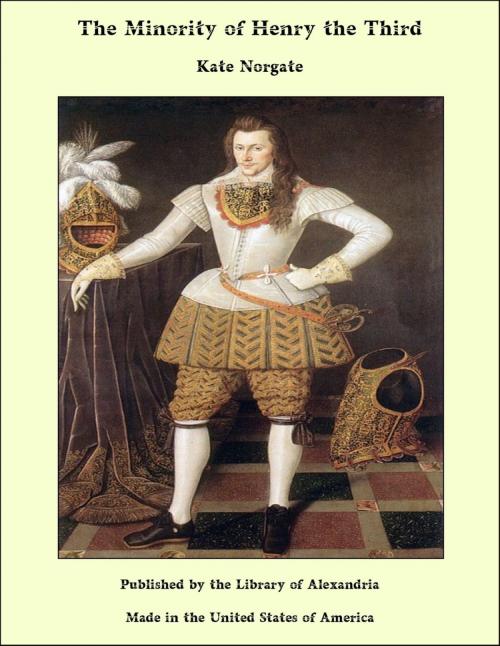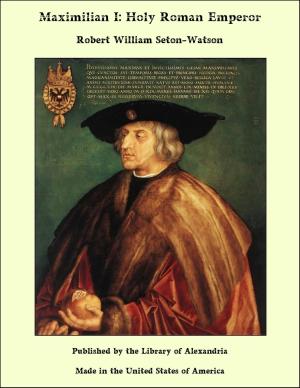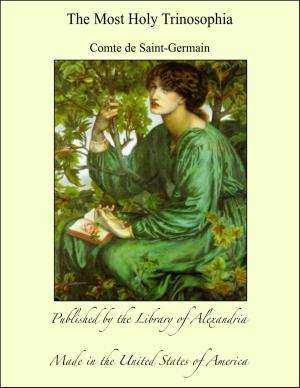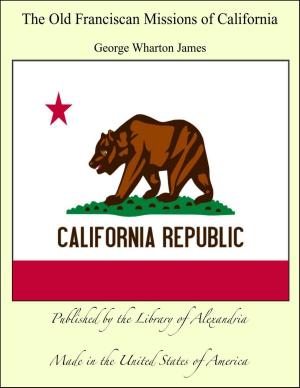The Minority of Henry the Third
Nonfiction, Religion & Spirituality, New Age, History, Fiction & Literature| Author: | Kate Norgate | ISBN: | 9781465616180 |
| Publisher: | Library of Alexandria | Publication: | March 8, 2015 |
| Imprint: | Language: | English |
| Author: | Kate Norgate |
| ISBN: | 9781465616180 |
| Publisher: | Library of Alexandria |
| Publication: | March 8, 2015 |
| Imprint: | |
| Language: | English |
On the 19th of October, 1216, King John lay dead in Newark castle. Nearly half of his realm, including the capital, was in the hands of a foreign invader who was supported by a numerous and powerful section of the English baronage as well as by the citizens of London; and the sole surviving male representatives of the royal house of England were two boys, the elder of whom was but nine years old. The King had been cut off suddenly, at a moment when not one of his English counsellors was at his side; and the small body of troops which he had brought with him from the west consisted almost entirely of foreign mercenaries. It might well have been expected that these men would, as soon as the “landless king” was dead, transfer their services to his rival. But John had possessed that mysterious gift which seems to have been common to the whole Angevin house, the gift of inspiring a personal attachment out of all proportion to the merits of its object. These men, seemingly without any leader to direct their action, took upon themselves and faithfully and successfully fulfilled the duty of carrying into effect John’s last wishes, so far as lay in their power, by conveying his corpse across England from Newark to Worcester, and calling on the loyal barons to meet them there for the double purpose of burying the dead King and concerting offensive and defensive measures to secure the rights of his heir. John’s last act had been to commend his eldest son to the care of the Earl of Pembroke, William the Marshal. “Sirs”—thus he is said to have addressed the few friends who stood around his death-bed—“I must die. For God’s sake, pray the Marshal to forgive me the wrongs that I have done him. He has always served me loyally, and never requited me an ill turn for any evil that I have done to him or said to him. Sirs, for God’s sake Who made the world, pray him that he will forgive me; and because I trust in his loyalty more than in that of any other man, I beg you that he may have my son in his charge, and always keep him and guard him; for the child will never be able to hold his land through any one, unless it be through the Marshal.” When the Marshal, who was at Gloucester, “heard say that the King his lord was dead, he was grieved thereat.” He set out at once to meet the funeral train at Worcester; Gualo the Legate, who no doubt also was somewhere in the west of England, did the like; and a goodly company of clerks and knights were present with them at the burial. As soon as it was over, “the great men”—that is, probably, the Legate and the Marshal—hurried back to Gloucester, and sent out a summons to all those barons who held with the King to join them there without delay. The appeal met with a quick response; a council was held, and all present unanimously agreed that they should send for little Henry “and do with him what God should teach them to be reasonable and right.” The child had been placed for safety in the castle of Devizes; Sir Thomas de Sandford was despatched to fetch him thence, and the Marshal went as far as Malmesbury to meet him.
On the 19th of October, 1216, King John lay dead in Newark castle. Nearly half of his realm, including the capital, was in the hands of a foreign invader who was supported by a numerous and powerful section of the English baronage as well as by the citizens of London; and the sole surviving male representatives of the royal house of England were two boys, the elder of whom was but nine years old. The King had been cut off suddenly, at a moment when not one of his English counsellors was at his side; and the small body of troops which he had brought with him from the west consisted almost entirely of foreign mercenaries. It might well have been expected that these men would, as soon as the “landless king” was dead, transfer their services to his rival. But John had possessed that mysterious gift which seems to have been common to the whole Angevin house, the gift of inspiring a personal attachment out of all proportion to the merits of its object. These men, seemingly without any leader to direct their action, took upon themselves and faithfully and successfully fulfilled the duty of carrying into effect John’s last wishes, so far as lay in their power, by conveying his corpse across England from Newark to Worcester, and calling on the loyal barons to meet them there for the double purpose of burying the dead King and concerting offensive and defensive measures to secure the rights of his heir. John’s last act had been to commend his eldest son to the care of the Earl of Pembroke, William the Marshal. “Sirs”—thus he is said to have addressed the few friends who stood around his death-bed—“I must die. For God’s sake, pray the Marshal to forgive me the wrongs that I have done him. He has always served me loyally, and never requited me an ill turn for any evil that I have done to him or said to him. Sirs, for God’s sake Who made the world, pray him that he will forgive me; and because I trust in his loyalty more than in that of any other man, I beg you that he may have my son in his charge, and always keep him and guard him; for the child will never be able to hold his land through any one, unless it be through the Marshal.” When the Marshal, who was at Gloucester, “heard say that the King his lord was dead, he was grieved thereat.” He set out at once to meet the funeral train at Worcester; Gualo the Legate, who no doubt also was somewhere in the west of England, did the like; and a goodly company of clerks and knights were present with them at the burial. As soon as it was over, “the great men”—that is, probably, the Legate and the Marshal—hurried back to Gloucester, and sent out a summons to all those barons who held with the King to join them there without delay. The appeal met with a quick response; a council was held, and all present unanimously agreed that they should send for little Henry “and do with him what God should teach them to be reasonable and right.” The child had been placed for safety in the castle of Devizes; Sir Thomas de Sandford was despatched to fetch him thence, and the Marshal went as far as Malmesbury to meet him.








![Cover of the book The Cabin [La Barraca] by Kate Norgate](https://www.kuoky.com/images/2015/march/300x300/9781465514592-Ey2r_300x.jpg)






